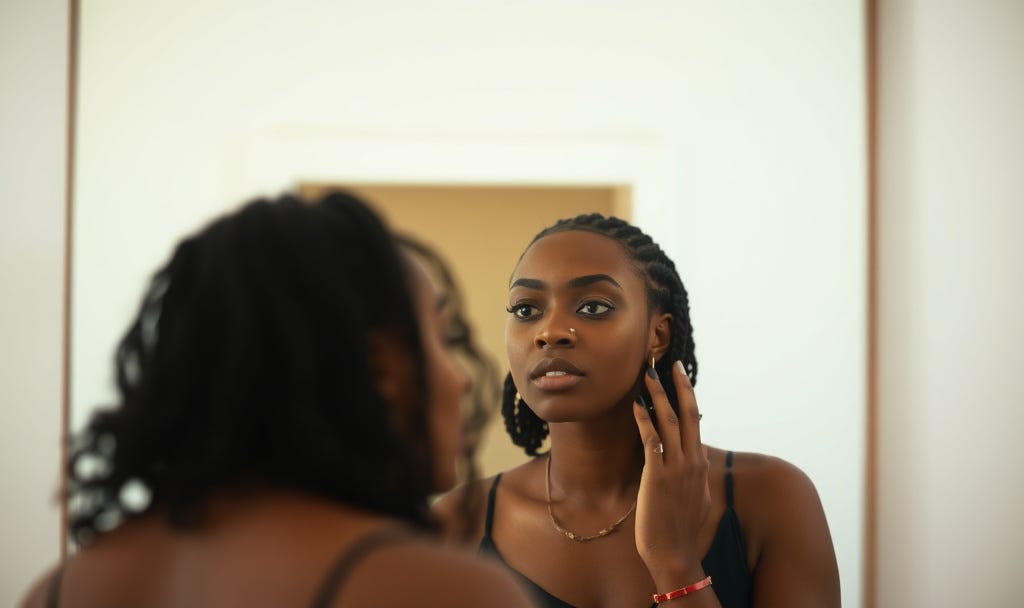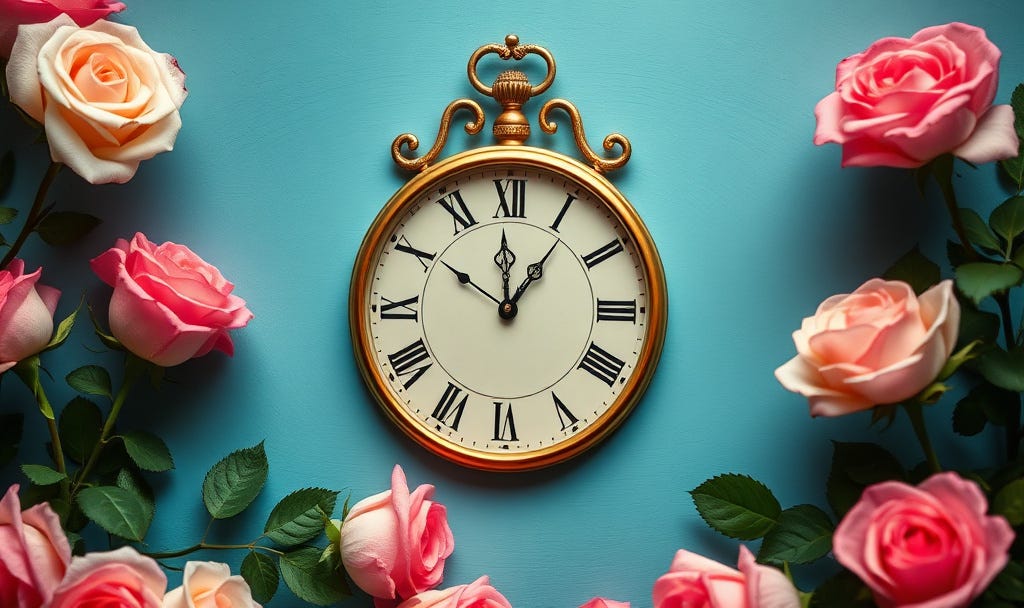Missing The Old Her...
Overcoming Grief of Self
1. Understanding Grief Beyond Death 🥀
Grief is often associated with the loss of people, but one of the most silent and sacred forms of grief is mourning the older versions of ourselves. These are the versions that didn’t know better, yet loved harder. The versions that were naive, bold, scared, or free. Grieving who we once were is difficult because we are grieving someone only we knew—someone who lived in our bodies, carried our dreams, and held our memories.
This grief doesn’t come with funerals or eulogies. Instead, it arrives quietly—in late-night thoughts, in old photos, in memories that ache. It’s the realization that we can never go back to who we were before the heartbreak, before the betrayal, before the knowledge. Growing means changing, and change often requires letting go of someone we once loved: our past self.
2. My Dialogue With My Older Self 💬
“It’s crazy to imagine that I would be born into a world that would shame my very existence, and I don’t mean that in a victim mentality type of way… I mean it in a holy smokes what the heck kind of world was I born into?”
Why do I feel like my purpose is so big, yet I still struggle to understand what it is? As a young girl, I watched life strike me for being too pretty, too confident, too joyful. So I shrank myself. I dimmed my light. I made myself small to make others more comfortable. My back grew heavier, carrying projections that were never mine.
Now, I look back and I miss her—the old me. She was unrefined, unfiltered, maybe even messy… but she was free. I was existing on the edge of chaos, yet I still had this confidence to keep going. Time has taught me many things, and with that knowledge came reverence for all the versions of me that survived. I am grateful for my upbringing. I’m thankful I no longer live in fear of being seen.
3. The Cons of Grieving the Old You 🖤
Grief isn’t gentle. And grieving your past self can be especially complex.
You may become stuck in nostalgia, believing the best parts of you are behind you.
You may romanticize the past and resent the present.
You can feel guilt—asking, “Did I abandon who I was supposed to be?”
It can trigger identity confusion. Who am I without the version I used to be?
Isolation can follow when others don’t understand this internal mourning.
In this grief, you might start to believe you’ve lost something essential, something you’ll never get back. And that hurts. Because in a way, you did.
4. The Pros of Grieving Older Versions of Yourself 🌱
But there is also beauty in this grief—because grief means you loved who you were.
Grieving helps you honor your journey instead of erasing it.
It allows you to appreciate your growth rather than regret it.
You begin to integrate past versions of you instead of abandoning them.
You learn compassion—for the girl who didn’t know, for the woman who now does.
You become intentional about who you’re becoming, rather than unconsciously evolving.
To grieve is to acknowledge that you lived. To heal is to understand you are still living—still blooming.
5. In Conclusion 🌹
Grieving old versions of yourself is not weakness—it is evidence that you cared for who you were, and you care for who you are becoming. You are not meant to stay the same. You are meant to evolve, break, mend, and rise again.
You can miss your past self and still love the person you are now. You can honor who you were without returning to them. You are allowed to hold grief in one hand and growth in the other.
Affirmation:
I am allowed to grow beyond the person I once was. I honor who I have been, I accept who I am, and I welcome who I am becoming.
And as always—
“When life gives you thorns, search for roses.”



